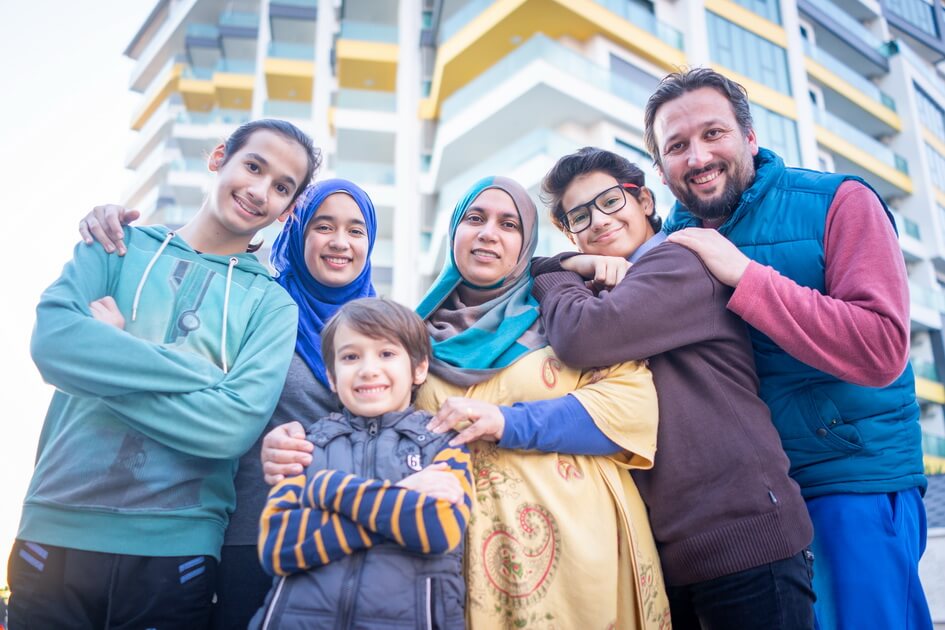
Daily Life in Jordan and Social Customs
Understanding daily life in Jordan offers more than a glimpse into Middle Eastern culture—it gives language learners real-world context to improve their Arabic naturally. From how people greet each other to the way olive oil is used in nearly every meal, life in Jordan blends deep-rooted traditions with modern rhythms.
Here’s your guide to navigating local customs, learning key Arabic phrases, and integrating smoothly into Jordanian society.
Table of Contents
ToggleJordanian Social Customs & Arabic Phrases
Greetings & Social Interactions:
Jordanians are warm and expressive. Greetings often include handshakes, cheek kisses (same-gender), or heartfelt wishes for health and family.
Phrases to Know:
- “السلام عليكم” (as-salāmu ʿalaykum) – Peace be upon you
- “كيف حالك؟” (kayfa ḥāluka?) – How are you?
- “تشرفنا” (tasharrafnā) – Nice to meet you
People may take time during greetings; rushing through them is considered impolite.
Coffee & Tea Culture:
Must-Know Vocabulary:
- “قهوة” (qahwa) – Coffee
- “شاي” (shāy) – Tea
- “نعنع” (naʿnaʿ) – Mint
- “سكر” (sukkar) – Sugar
Arabic coffee (bitter, with cardamom) is served at ceremonies. Sweet tea with fresh mint is for casual visits. Always accept at least one small cup unless you have a strong reason to decline.
Friday Family Gatherings:
Many families prepare mansaf, Jordan’s national dish, made with lamb, rice, and fermented yogurt, often garnished with olive oil and almonds.
Language Practice:
“شو في عالغداء اليوم؟” – Shū fī ʿal-ghadāʾ il-yawm? – “What’s for lunch today?”
Parents Call Their Children “Mom” and “Dad”:
In Jordanian Arabic, it’s common for parents to call their children “mama” and “baba” as a form of endearment—not just the other way around.
Phrases to Know:
- “يلا ماما” (yallā mama) – Let’s go, sweetheart
- “شو رأيك بابا؟” (shū raʾyak bāba?) – What do you think, my dear?
Nothing Is Useless:
Old items are reused or repurposed. Plastic bags, containers, and even old furniture find second or third lives.
Phrases to Know:
- “لسا بنفع” (lissā binfaʿ) – It still works
- “ما بنكبه” (mā binkibbuh) – We don’t throw it away
Saying Goodbye Is a Conversation Starter:
Saying goodbye in Jordan can take several minutes and often includes multiple farewells, extra tea, and promises to meet again soon.
Phrases to Know:
- “مع السلامة” (maʿ as-salāma) – Goodbye
- “بنشوفك قريب” (binshūfak qarīb) – See you soon
- “إن شاء الله” (in shāʾ Allāh) – God willing
Daily Routines in Jordan
1- Morning to Night Schedule
Most Jordanians start their day early. Schools and offices open around 8 AM. Shops open mid-morning and stay open late. Dinner is often around 8–9 PM, followed by family time or TV.
2- Weekend vs. Weekday Differences
The weekend in Jordan is Friday and Saturday. Friday is reserved for prayer and family, while Saturday is more flexible. Sundays are the first workday of the week.
Do’s & Don’ts in Jordan
Do:
1. Use Polite and Respectful Greetings
Always greet people warmly, especially elders. It’s common to say “السلام عليكم” (as-salāmu ʿalaykum) and wait for the reply “وعليكم السلام” (wa ʿalaykum as-salām). Show genuine interest in someone’s well-being.
2. Accept Hospitality
Whether it’s a small cup of Arabic coffee or a full meal, always accept hospitality graciously—even if you only take a sip or a bite. Refusing might be taken as impolite.
3. Dress Modestly, Especially in Rural Areas
Life in Jordan involves daily interactions between diverse communities. Respect local norms by wearing modest clothing—especially when visiting religious sites or conservative towns.
4. Learn a Few Arabic Phrases
Even small efforts in Arabic go a long way. Saying “شكراً” (shukran – thank you) or “من فضلك” (min faḍlik – please) shows appreciation and earns respect.
5. Use the Right Hand
Use your right hand to eat, pass items, and shake hands. The left hand is considered less clean in traditional etiquette.
6. Observe Local Prayer Times
During Friday prayers, most businesses close, and the streets are quieter. Be mindful and respectful of religious practices and public announcements.
Don’t:
1. Don’t Show Public Displays of Affection
Kissing, hugging, or touching between opposite genders in public is frowned upon. It’s best to keep physical contact reserved for private or family settings.
2. Don’t Point the Soles of Your Feet at Others
When sitting, avoid pointing your feet toward people or sacred objects. It’s considered disrespectful in Jordanian and broader Arab culture.
3. Don’t Enter Homes Without Removing Shoes (If Requested)
In some homes, it’s customary to remove shoes before entering. Look for cues at the door or politely ask if unsure.
4. Don’t Criticize Local Customs or Religion
Avoid making negative remarks about Jordanian traditions, Islam, or the monarchy. Jordanians are very proud of their heritage, and such comments may offend.
5. Don’t Photograph People Without Permission
Always ask before taking photos of individuals, especially women, children, or in religious or private spaces.
6. Don’t Assume All Jordanians Are the Same
Jordan includes diverse communities—Bedouin, Palestinian, Circassian, and others—each with unique traditions. Be curious, not presumptive.
Final Thought
Daily life in Jordan is rich with cultural layers, each offering opportunities to learn Arabic naturally. Whether you’re sipping mint tea, attending a Friday gathering, or shopping for olives in the souk, Jordan teaches language through experience.
FAQ
What does the phrase “Inshallah” actually mean in daily Jordanian life?
While literally meaning “God willing,” in daily life, Inshallah is a multi-purpose social tool. It can mean a firm “yes,” a polite “maybe,” or even a gentle “no” depending on the tone. In the Levant, it is used to acknowledge that while we have plans, the future is flexible. To sound like a local, use it when confirming appointments, but remember that if a Jordanian says it with a smile and a shrug, they might be leaving some room for “flexible timing.”
How should I handle a spontaneous invitation to a Jordanian home?
Jordanian hospitality is famously persistent. If someone invites you for tea or dinner, it is polite to initially decline with a “Shukran, ma baddeh a’azbak” (Thank you, I don’t want to trouble you). Usually, the host will insist at least three times. Once you accept, you are considered a “guest of God” (Deif el-Rahman). It is customary to bring a small gift, like a box of sweets (Halawiyat), and to leave your shoes at the door if you see others have done so.
What is the “Coffee Etiquette” I need to know for social visits?
Coffee is the social currency of Jordan. When served Sada (traditional bitter cardamom coffee), your cup will be refilled automatically. To signal that you have had enough, you should gently “shake” your cup from side to side (Hazz el-finjan) before handing it back to the host. If you simply hand it back without the shake, it will be refilled indefinitely. This small gesture is a vital part of the silent “Social IQ” in the Levant.
Is there a specific dress code for daily life in Amman versus the countryside?
Jordan is a blend of “modern modesty.” In upscale Amman neighborhoods like Abdoun or Jabal Al-Lweibdeh, Western-style clothing is common and widely accepted. However, when visiting more traditional areas or the downtown Balad, it is respectful to dress more conservatively—covering shoulders and knees. A good rule of thumb for daily life is “smart-casual and modest,” which helps you blend in and shows respect for the local social fabric.
How do I navigate transportation and “taxi talk” using the local dialect?
While ride-sharing apps like Careem and Uber are popular and easy to use, the yellow taxi is a classic Amman experience. To sound like a local, greet the driver with “Ya’teek el ‘afyeh” (May God give you health). Use the phrase “A’al-yameen, min fadlak” (To the right, please) or “Dughri” (Straight ahead) for directions. Small talk about the weather or traffic is common, and being able to navigate in the Shami dialect often ensures a more friendly and efficient trip.
What is the significance of the phrase “Sahtain” during meal times?
You will hear “Sahtain!” (Double health!) whenever you are eating or drinking. It is the Levantine equivalent of “Bon appétit.” The proper response is “’Ala qalbak” (To your heart). This exchange is more than just a politeness; it reflects the Jordanian view that food is a shared blessing. Using these responses at a restaurant or a friend’s house shows that you understand the warmth and communal spirit of Jordanian daily life.



